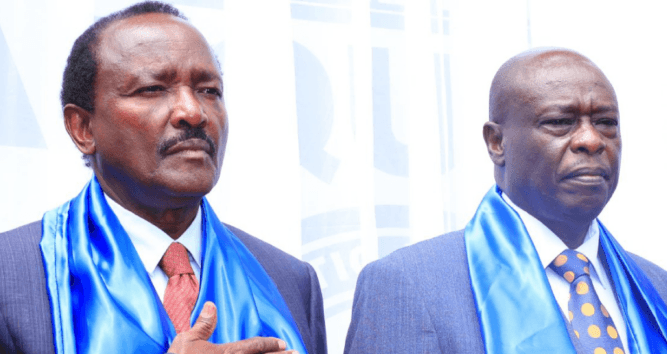At the beginning of autumn, from September 4 to 6, China will host several African heads of state in the Forum on China–Africa Cooperation in Beijing. The summit will focus on enhancing cooperation between China and Africa.
Kenya, as a key ally of China and a gateway to East Africa, should actively participate in this summit. As one of the beneficiaries of FOCAC and the Belt and Road Initiative in the region, the country stands to gain numerous opportunities in areas such as modernisation, rail, road, ports, technology, electric vehicles and housing. Properly identifying and leveraging these opportunities could yield significant economic benefits for both countries.
Since President William Ruto took office, Chinese activities in Kenya have notably decreased compared to the Jubilee administration. Kenyans are questioning why the Kenya Kwanza administration lacks flagship projects, which could be addressed by maintaining close relations with China. FOCAC provides an excellent platform for Kenya to negotiate infrastructural deals that would benefit the country.
Although the current government's foreign policy focuses on the economy, this should not lead to sidelining our Eastern partners. While new allies may help combat corruption, terrorism and HIV/AIDS, China remains crucial for infrastructure development, such as roads, rails and ports.
Despite the government's stance of embracing 'Economic Diplomacy,' the West has significantly influenced Kenya, including through the International Monetary Fund imposing economic policies, which has sparked Gen Z protests. Neutrality on the global stage may prevent extreme sanctions or isolation but can also result in missed economic opportunities, as seen in our current situation.
With the collapse of the Finance Bill 2024 imposing far-reaching consequences on the delivery of services and development projects, this is the time Kenya needs its friends like China to actualise its development projects through public-private partnership which remains the only option of financing our projects.
When government enters into any agreement to finance any project to catalyse our economic growth, it should not be clouded in secrecy and our courts have let out structure and guidelines on how to carry out a public participation which conforms with Article 118 of our constitution. When government officials remain tight-lipped on some of these projects, it creates room for speculations which tarnishes the country’s image globally.
China has played a vital role in Kenya's infrastructure development, from the Standard Gauge Railway and Nairobi Expressway to the Global Trade Centre and the Sino-Africa Joint Research Centre. Despite some concerns over Chinese deals, their support has proven valuable for win-win cooperation.
Kenya must attend the September FOCAC summit to negotiate trade deals that address the trade deficit between Nairobi and Beijing. According to the Kenya National Bureau of Statistics, it imported goods worth Sh344 billion from China in 2020, while exporting only Sh15.3 billion in return. Early this year, data from the General Administration of Customs of the People’s Republic of China showed that China exported goods worth Sh1.26 trillion to Kenya last year, marking a slight decline from Sh1.27 trillion in 2022.
President Ruto should attend the FOCAC summit to dispel the notion that he favours the West and to strengthen ties with the East. China has consistently proven its willingness to assist its friends.
Under President Uhuru Kenyatta, Kenya’s relationship with China was primarily focused on securing loans, as Chinese funding mechanisms differ from those of the US, which involves more bureaucratic hurdles. Chinese-linked companies, like China Wu Yi Construction Company Limited and China Road and Bridge Corporation, have secured major projects during past administrations.
As Kenya begins to embrace electric vehicles and focus on combating global warming, FOCAC offers opportunities for cooperation and investment. We should also explore innovative housing concepts to support President Ruto’s affordable housing project.
With Kenya set to mark 61 years of Sino-Kenya bilateral ties, we should learn from China’s successful economic strategies. Early last year, Chinese President Xi Jinping advocated respect for diverse civilisations and international exchanges. China’s preservation of its historical sites, such as the Great Wall and the Terra Cotta Army, offers lessons for promoting domestic tourism and creating job opportunities in Kenya.
Instead of over-relying on inbound tourism, the government should develop strategies to boost domestic tourism. For example, China preserves historical sites for public visitation, a practice Kenya could adopt, such as charging fees for visiting Jomo Kenyatta’s Mausoleum at Parliament.
Although domestic tourism is growing, the Ministry of Tourism should enhance awareness and resilience against crises affecting inbound tourism, such as pandemics or political instability.
After 60 years of independence, it is crucial to address domestic issues and adopt effective practices from others. While China’s emphasis on domestic tourism and economic development offers valuable lessons, Kenya should avoid only mimicking practices without fully understanding their context.
The writer is a journalist and communication consultant












![[PHOTOS] Ruto launches Rironi-Mau Summit road](/_next/image?url=https%3A%2F%2Fcdn.radioafrica.digital%2Fimage%2F2025%2F11%2F6f6601a6-9bec-4bfc-932e-635b7982daf2.jpg&w=3840&q=100)


